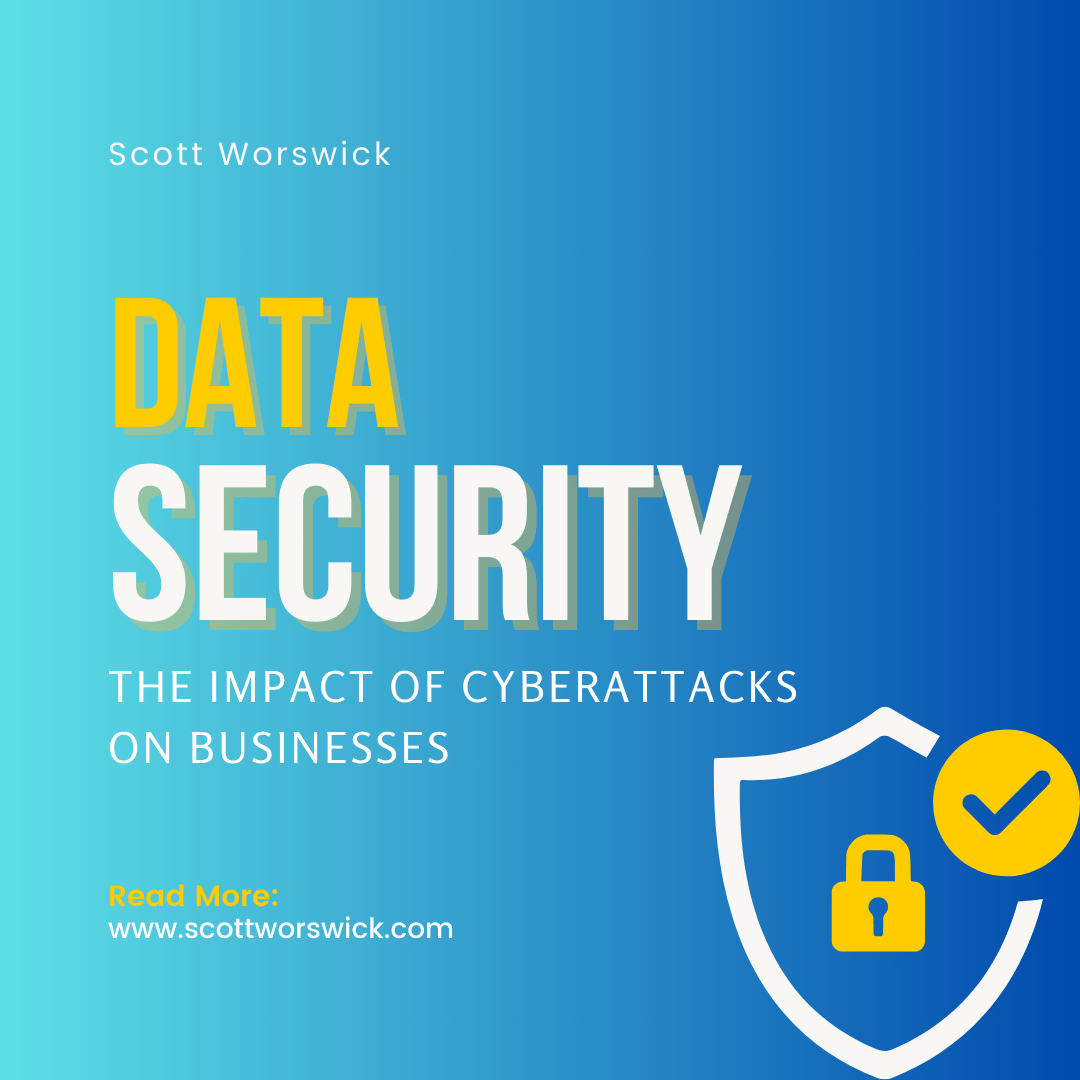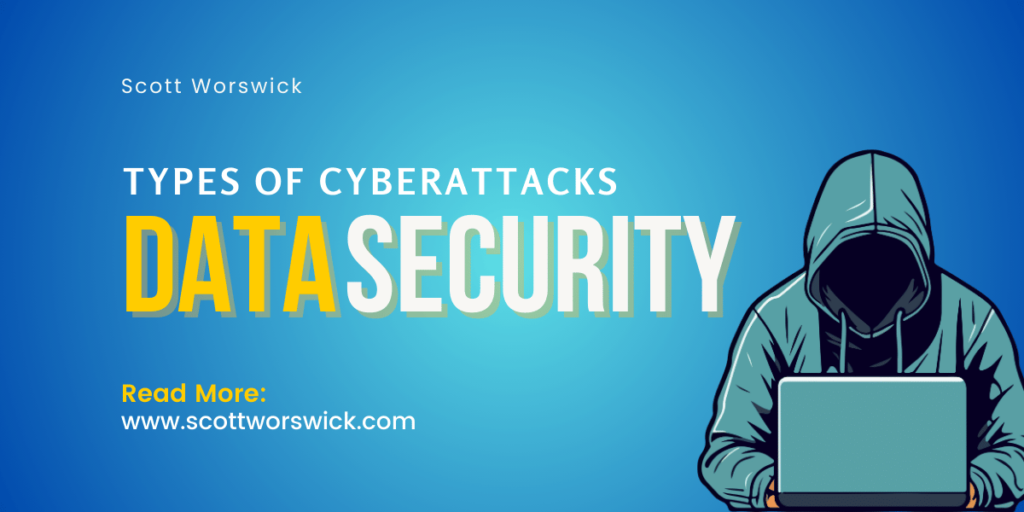In today’s hyper-connected world, businesses across all industries are more reliant on technology than ever before. This digital transformation has undoubtedly brought about countless benefits, from improved efficiency to the ability to reach global markets. However, it has also introduced significant risks, with cyberattacks emerging as a formidable threat to businesses of all sizes. These attacks, which range from data breaches to ransomware, can have devastating consequences, including financial loss, operational disruptions, and severe reputational damage. As a result, the importance of robust data security measures cannot be overstated.
The financial implications of cyberattacks are staggering. Companies can face direct costs such as ransom payments, legal fees, and fines from regulatory bodies. Indirect costs, including lost revenue due to downtime and the expense of rebuilding compromised systems, can also be substantial. Moreover, the loss of customer trust and damage to a brand’s reputation can have long-lasting effects, further highlighting the critical role that data security plays in safeguarding a company’s financial health and market position.
Beyond financial repercussions, the impact of cyberattacks extends to operational efficiency and regulatory compliance. Disrupted operations can halt production, delay services, and compromise the quality of customer interactions, leading to a loss of business opportunities. Additionally, failure to comply with data protection regulations, such as GDPR or CCPA, can result in hefty fines and legal challenges. Therefore, businesses must prioritize data security, not only to protect their assets and maintain trust but also to ensure compliance with legal requirements and sustain their operational integrity.
Table of Contents
1. Types of Cyberattacks
Cyberattacks come in various forms, each designed to exploit vulnerabilities within a business’s digital infrastructure. One of the most common types is phishing, where attackers masquerade as legitimate entities to trick individuals into revealing sensitive information, such as login credentials or financial details. These deceptive emails or messages often appear convincing, making it challenging for employees to distinguish them from genuine communications. When successful, phishing attacks can lead to significant data breaches, compromising both personal and corporate information and emphasizing the need for vigilant data security practices.
Another prevalent form of cyberattack is malware, which encompasses a range of malicious software, including viruses, worms, and trojans. Malware is designed to infiltrate and damage systems, steal data, or spy on users without their knowledge. Ransomware, a particularly insidious type of malware, locks users out of their systems or data until a ransom is paid. The rise in ransomware attacks has been alarming, with high-profile cases impacting hospitals, municipalities, and multinational corporations. These attacks can cripple business operations, leading to substantial financial losses and operational downtime, highlighting the critical importance of proactive data security measures.
Distributed Denial of Service (DDoS) attacks are another significant threat, where attackers overwhelm a network or website with a flood of internet traffic, rendering it inaccessible to legitimate users. These attacks can disrupt business operations, causing service outages that can frustrate customers and damage a company’s reputation. In the face of such threats, businesses must implement comprehensive data security strategies to protect their networks from potential disruptions. Additionally, they should invest in robust security infrastructures, such as firewalls and intrusion detection systems, to detect and mitigate these attacks before they cause extensive damage.
2. Financial Impact
The financial impact of cyberattacks on businesses can be staggering, often extending far beyond the immediate costs associated with the attack itself. Direct financial losses can include ransom payments demanded by attackers, legal fees, and regulatory fines imposed for failing to protect sensitive data adequately. In addition to these immediate expenses, businesses must also contend with the cost of incident response, which involves identifying and mitigating the breach, restoring compromised systems, and implementing additional security measures to prevent future attacks. These direct costs alone can strain a company’s financial resources, but the broader financial implications are even more profound.
Indirect financial losses resulting from cyberattacks can significantly affect a company’s bottom line. Operational disruptions caused by these attacks can lead to lost revenue, as critical systems and services may be rendered unavailable for extended periods. For instance, e-commerce businesses may lose sales if their websites are taken offline, while service providers may be unable to deliver their offerings to clients. Additionally, the time and resources required to investigate and recover from an attack can divert attention away from core business activities, further exacerbating financial losses. The ripple effect of these disruptions can be long-lasting, impacting everything from productivity to customer satisfaction.
Beyond the immediate and indirect costs, cyberattacks can inflict severe reputational damage, which carries its own financial consequences. When customers lose trust in a company’s ability to protect their personal information, they may take their business elsewhere, resulting in a loss of market share. Rebuilding this trust can be an arduous and costly process, often requiring significant investment in marketing and public relations efforts. Moreover, companies may face increased scrutiny from regulators and the public, leading to heightened compliance costs and the potential for further financial penalties. Given these far-reaching financial impacts, it is crucial for businesses to prioritize data security, investing in robust measures to protect their assets and mitigate the risk of cyberattacks.
3. Reputational Damage
Reputational damage from cyberattacks can be devastating for businesses, often causing long-term harm that is difficult to reverse. When a company suffers a data breach, the immediate aftermath is typically characterized by negative media coverage and public scrutiny. Customers, partners, and stakeholders lose confidence in the organization’s ability to safeguard their sensitive information, which can lead to a loss of business and a tarnished brand image. The rapid spread of information through social media and news outlets means that any mishandling of the situation can quickly escalate, amplifying the negative impact and making recovery even more challenging.
The loss of trust resulting from a cyberattack can have significant repercussions on customer loyalty and retention. Consumers are increasingly aware of the importance of data security and are more likely to switch to competitors if they feel their personal information is at risk. This erosion of trust can result in a substantial decline in revenue as existing customers leave and potential new customers opt for more secure alternatives. Moreover, businesses that rely heavily on their reputation, such as financial institutions or healthcare providers, may find it particularly difficult to regain their standing in the market. Rebuilding trust requires time, transparency, and often a substantial investment in enhanced security measures and public relations campaigns.
In addition to losing customers, businesses may also face challenges in maintaining relationships with partners and investors following a cyberattack. Partners may hesitate to continue collaborations, fearing that their own operations could be compromised by association. Investors, on the other hand, may lose confidence in the company’s leadership and strategic direction, leading to a decline in stock prices and reduced access to capital. The broader business ecosystem can be affected as well, with potential difficulties in attracting top talent who may be wary of joining a company with a tarnished reputation. These combined factors underscore the critical importance of data security, not only for protecting sensitive information but also for maintaining the trust and confidence of all stakeholders involved in the business.
4. Legal and Regulatory Consequences
The legal and regulatory consequences of cyberattacks can be severe, often compounding the challenges businesses face in the wake of a data breach. Governments worldwide have enacted stringent data protection laws, such as the General Data Protection Regulation (GDPR) in Europe and the California Consumer Privacy Act (CCPA) in the United States. These regulations impose heavy penalties on organizations that fail to adequately protect personal data. Non-compliance can result in significant fines, sometimes amounting to millions of dollars, which can financially cripple a business. Moreover, regulatory investigations can be time-consuming and resource-intensive, diverting attention from core business activities and further straining company resources.
Beyond financial penalties, businesses may also face legal actions from affected individuals and entities. Class-action lawsuits can arise when customers’ personal information is compromised, leading to substantial legal fees and potential settlements that can further damage a company’s financial stability. Additionally, the legal fallout from a cyberattack often requires businesses to enhance their data security measures, implement new compliance protocols, and undergo regular audits, all of which incur additional costs. These legal and regulatory repercussions underscore the critical importance of data security, not only for protecting sensitive information but also for ensuring compliance with the ever-evolving landscape of data protection laws and regulations.
5. Operational Disruptions
Operational disruptions caused by cyberattacks can cripple businesses, leading to significant downtime and loss of productivity. When critical systems are compromised, companies may find themselves unable to access vital data, run essential applications, or communicate effectively with clients and employees. For instance, a ransomware attack can lock users out of their systems, demanding payment for restoration, which can halt operations for hours or even days. These interruptions can be particularly damaging for industries that rely on real-time data and continuous operations, such as healthcare, finance, and manufacturing. The resulting delays and inefficiencies can lead to missed deadlines, reduced customer satisfaction, and ultimately, a loss of revenue.
The long-term effects of operational disruptions extend beyond immediate downtime. Businesses may need to invest considerable time and resources into restoring affected systems and data, often involving specialized IT teams and external cybersecurity experts. This recovery process can divert attention from regular business activities, slowing down overall progress and growth. Additionally, the need to overhaul security protocols and implement more robust data security measures can incur further costs and require ongoing maintenance. In this context, the importance of proactive data security becomes evident, as it helps prevent such disruptions and ensures business continuity even in the face of potential cyber threats.
6. Intellectual Property Theft
Intellectual property (IP) theft through cyberattacks represents a significant threat to businesses, potentially undermining their competitive edge and market position. Cybercriminals target valuable assets such as patents, trade secrets, proprietary algorithms, and sensitive business plans. When these critical elements are stolen, the affected company can lose years of research and development, giving competitors or malicious actors an unfair advantage. This type of theft is particularly devastating for industries reliant on innovation, such as technology, pharmaceuticals, and manufacturing, where IP forms the backbone of their competitive strategy.
The financial implications of intellectual property theft are profound. Companies invest substantial resources in developing unique products, technologies, and processes, and the theft of these assets can lead to significant financial losses. Not only does the immediate loss of IP value impact the bottom line, but there is also the long-term effect of diminished market share as competitors capitalize on the stolen information. Additionally, businesses may face legal battles to reclaim their IP or to seek damages, incurring further expenses. These financial burdens underscore the necessity of robust data security measures to protect intellectual property from cyber threats.
Beyond financial loss, IP theft can severely damage a company’s reputation and erode trust among clients and partners. Businesses known to have weak data security may struggle to attract new collaborations or investments, as stakeholders seek to avoid the risks associated with insecure IP. The perceived inability to protect sensitive information can also lead to customer attrition, as clients look for more secure alternatives. To mitigate these risks, businesses must prioritize data security, employing advanced encryption, regular security audits, and comprehensive employee training to safeguard their intellectual property against the ever-evolving landscape of cyber threats.
7. The Role of Employee Training
Employee training plays a crucial role in bolstering a company’s defenses against cyberattacks, serving as a vital component of a comprehensive data security strategy. Employees are often the first line of defense against cyber threats, but they can also be the weakest link if not properly educated. Cybercriminals frequently exploit human error through tactics like phishing, where unsuspecting employees are tricked into revealing sensitive information or clicking on malicious links. Regular training programs can equip employees with the knowledge and skills to recognize and respond to these threats, significantly reducing the likelihood of successful cyberattacks.
Effective employee training should cover a broad range of topics, including recognizing phishing attempts, understanding the importance of strong password practices, and knowing how to report suspicious activities. Interactive and engaging training methods, such as simulations and real-world scenarios, can enhance learning and retention. Additionally, training should be an ongoing process, with regular updates to address new and emerging threats. By fostering a culture of vigilance and awareness, businesses can empower their employees to become active participants in their data security efforts, thereby enhancing the overall resilience of the organization.
Beyond technical knowledge, employee training should also emphasize the broader implications of cyberattacks, such as financial loss, reputational damage, and operational disruptions. When employees understand the potential consequences of a security breach, they are more likely to take their training seriously and adhere to best practices. Furthermore, fostering an environment where employees feel comfortable reporting potential threats without fear of reprisal can lead to quicker identification and mitigation of risks. Ultimately, well-informed and engaged employees are a company’s best defense against cyber threats, making employee training an indispensable part of any robust data security strategy.
8. Implementing Robust Security Measures
Implementing robust security measures is essential for protecting businesses against the increasing threat of cyberattacks. A multi-layered security approach begins with basic defenses such as firewalls and antivirus software, which act as the first line of defense against malicious activities. Advanced measures, such as intrusion detection systems (IDS) and intrusion prevention systems (IPS), monitor network traffic for suspicious activity and automatically respond to potential threats. Encryption plays a critical role in safeguarding sensitive data, ensuring that even if data is intercepted, it remains unreadable to unauthorized users. Regular software updates and patches are also vital, as they address known vulnerabilities that cybercriminals could exploit.
In addition to technical measures, implementing robust security practices involves establishing comprehensive policies and procedures. Multi-factor authentication (MFA) adds an extra layer of security by requiring users to provide multiple forms of verification before accessing sensitive information. Conducting regular security audits and vulnerability assessments helps identify potential weaknesses and areas for improvement. Employee education and awareness programs are also crucial, as human error is often a significant factor in security breaches. By fostering a culture of vigilance and adherence to best practices, businesses can enhance their overall security posture. Together, these measures create a resilient defense system that is crucial for maintaining data security in the face of evolving cyber threats.
9. Importance of Incident Response Plans
The importance of having a well-defined incident response plan cannot be overstated when it comes to managing the fallout from cyberattacks. An effective incident response plan provides a structured approach for detecting, containing, and mitigating the impact of a security breach. It outlines specific roles and responsibilities, ensuring that all team members know their tasks and can act swiftly in the event of an attack. This preparedness is crucial for minimizing damage, reducing recovery time, and preventing further compromise of sensitive data. A well-crafted response plan also includes communication strategies for informing stakeholders, customers, and regulatory bodies, which can help manage the situation more effectively and maintain trust.
Moreover, incident response plans facilitate a coordinated and efficient reaction to cyber incidents, helping businesses navigate the complexities of an attack with greater ease. Regular testing and updating of the plan ensure that it remains relevant and effective in addressing new and emerging threats. By simulating various attack scenarios, businesses can identify potential gaps in their response strategy and refine their procedures accordingly. This proactive approach to data security not only enhances the organization’s ability to recover quickly but also demonstrates a commitment to safeguarding sensitive information. In a landscape where cyber threats are constantly evolving, having a robust incident response plan is essential for maintaining operational resilience and protecting the integrity of business operations.
10. The Future of Data Security
The future of data security is being shaped by rapid technological advancements and an ever-evolving threat landscape. As cyberattacks become more sophisticated, businesses must adapt by integrating cutting-edge security technologies into their defense strategies. Artificial intelligence (AI) and machine learning are at the forefront of this evolution, offering the ability to detect and respond to threats in real-time. These technologies analyze vast amounts of data to identify patterns and anomalies that might indicate a potential breach. By leveraging AI, businesses can enhance their ability to predict and prevent cyberattacks before they cause significant harm.
Additionally, the rise of cloud computing and the Internet of Things (IoT) introduces new security challenges and opportunities. While these technologies offer substantial benefits, they also expand the attack surface, requiring businesses to implement robust security protocols tailored to their specific environments. Cloud service providers are continuously enhancing their security measures, but it is crucial for businesses to adopt comprehensive strategies that encompass data encryption, access controls, and regular security assessments. As IoT devices proliferate, securing these endpoints becomes increasingly critical, as they can serve as entry points for cybercriminals.
Looking ahead, data security will likely see a shift towards more integrated and automated solutions. The convergence of cybersecurity with other technological domains, such as blockchain for secure transactions and biometric authentication for enhanced access control, will further strengthen defenses against cyber threats. Businesses will need to remain agile and proactive, continuously updating their security measures to address emerging risks and vulnerabilities. The future of data security will demand a collaborative approach, combining innovative technologies with a culture of vigilance and adaptability to safeguard sensitive information in an increasingly interconnected world.
Conclusion
The impact of cyberattacks on businesses underscores the critical importance of robust data security measures. Cyber threats are increasingly sophisticated, targeting not only sensitive information but also the operational integrity and reputation of organizations. The financial, reputational, and operational damages resulting from these attacks highlight the need for businesses to invest in comprehensive security strategies. Implementing advanced technologies, developing thorough incident response plans, and fostering a culture of vigilance among employees are essential steps in safeguarding against potential breaches.
As we move forward, the evolving landscape of cyber threats will continue to challenge businesses, making proactive data security more vital than ever. Embracing innovative solutions, such as artificial intelligence and blockchain, while staying informed about emerging risks, will be key to maintaining a strong defense against cyberattacks. By prioritizing data security and adapting to the ever-changing threat environment, businesses can protect their valuable assets, ensure operational continuity, and sustain trust among customers and stakeholders.







Pingback: The Role of Firewalls and Antivirus Software in Data Security and Protection -
Simply wish to say your article is as amazing The clearness in your post is just nice and i could assume youre an expert on this subject Well with your permission let me to grab your feed to keep updated with forthcoming post Thanks a million and please carry on the gratifying work